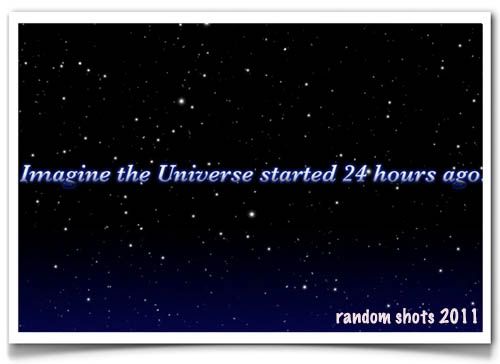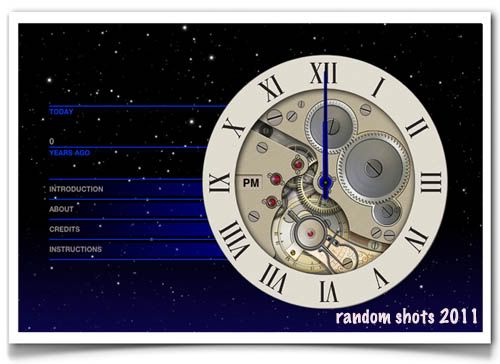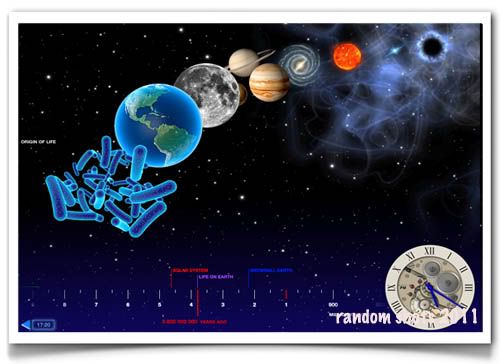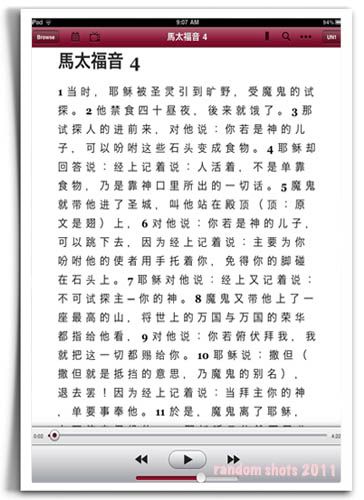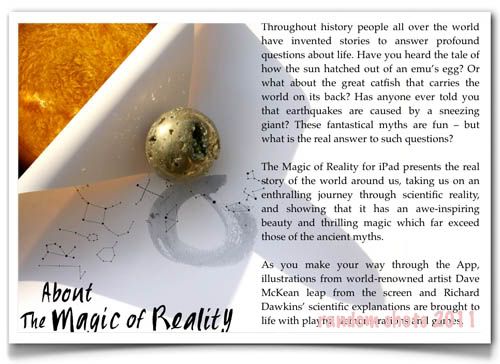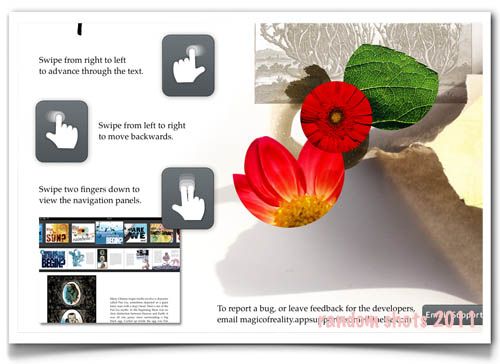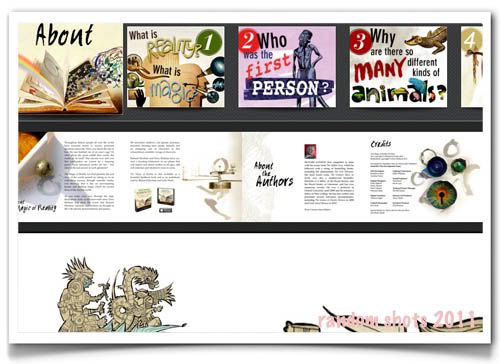The book was launched on Monday and by the same evening I was already reading it. The irony was it was made possible by the very person I was reading about. I found the book 'mesmerizing' enough to keep me glued. And 48 hours later, I was done with it, all 728 pages of it. In between, I went to do a video shoot of a kiddy sports, at the same time downloaded and installed the iOS 5 for the same friend; multitasking. I sat too with my girl with her lessons and pottered around the house, the usual never ending housework, edited some of the video and pictures on my iMac.... but I was rather disorientated and blur though, because I was caught up by the book. It's best to enjoy a read when one is free actually...
What do I think of the book? It's a good read. Rarely do we get an opportunity to read a biography, 'in his own words', the words of the person being written... but from the author's perspective. I sound confusing, I know. It would have become an autobiography had Jobs written it himself. When Jobs knew that he was going to die, he sought out Isaacson to write his biography - so that his children will know him, he said. He gave Isaacson a free hand to interview anyone, everyone and write his biography in the way he saw fit.
Reading about Jobs' growing up years was fascinating. Jobs and Gates, the two men who shaped computer technology are contemporaries. Jobs did not finish college. Neither did Wozniak until many years later. Gates dropped out from Harvard. It could be all these men were self taught but the education system must have succeeded in shaping their minds. I am impressed by the depth of their high school projects. Even though we have so much facilities and better trained teachers (on paper), we pale in comparison almost 40 years later.
Jobs was a difficult person with a reality distortion field; as how those people around him labelled him. To me, it's a more techy (and polite?) way of saying he lied when it suited him. But he was brutally honest too. I think everyone of us is like that too, often, have our own reality distortion field, but minus the brutal honesty. Most of us would prefer to keep our reality distortion field comfortable for everyone. Jobs did not outwardly seem to care how his actions might cause others to feel or think about him or the consequences that would befall him. But his genius was his ability to bring out the untapped and the genius in others, for at least those who were willing to be pushed into the unknown of themselves. And that's why he was able to do the things that he did, make his gadgets a lifestyle, change the way we do things. Despite his reality distortion field, I find him compellingly consistent, be it, his quirky food habits (he gets fixated with one kind of food, his fasts and purges), his famous mean streak, stubbornness, his focus on the products that he envisioned, and commitment. Mr. Nice Guy he was not, but life can never achieve greatness by just trying to please everyone, I think. But being consistent is a necessary good (or evil, depends on how you look at it) where this is concerned, I think.
While many of the ideas he claimed his weren't exactly his, as Jony Ive, one of those few people who understood Jobs better than most said that, had it been other companies or CEO, it would have taken good ideas weeks, months or never to come to fruition because cost (profit) would have mattered more than anything else. In one instance, when Rubinstein told him that he needed $10 million to seal what he believed is a solution (which was Toshiba's 1.8 inch hard drive. The Toshiba engineers had no idea what to do with it yet at that time) to the problem of storage of what was to become the IPod, he approved it immediately, minus all the hassle of board meetings. This is one of life's lessons which I've had good fortune to experience.
Years ago, when I was just a rookie, I transferred into a school with an enthusiastic Principal with a passion for education technology. That was almost 20 years ago. We had many conversations even though I was still very new. He liked to throw ideas at me and get my response. And through our conversations, he discovered that I had some computer skills. He wanted to set up a media room, with LCD projectors but could not find anyone willing. My youthful gungho-ness and recklessness said that it could be done but I needed 20K. It was a huge sum back in those days! Somehow, he convinced the PTA to fork out the amount of money and we went on to set up one of the first media rooms. Those were heady days for me. I learned a lot. And it was because my boss believed in me and he continued to support me by having many more conversations and encouraging me on.... even though I had many doubts after my initial recklessness. I owe a lot to that boss and am grateful to be able to work with him. Because of that experience, I embrace technological advances and changes more readily today too. But bosses like him are hard to come by these days.... made worse by the haziness of politics.
Jobs' work ethics was legendary. An organization is only as good as its head. A fish rots from the head. Again, and again in this book I find it to be quite true. The rise and fall of Hewlett Packard, Disney, Apple, IBM... they speak volumes about the people who led them. You are only as good as your head because the majority of us, come with very bendable reality distortion fields. At some point, our reality distortion field will convince us that we are doing great, bringing in good profits, etc, etc. but they can only be stretched that long before the distortion becomes reality of the opposite. Take a good look at our own country, Malaysia. The AG report for the past few years have been highlighting abuses after abuses. It used not to be this bad... imagine deferring the repairs of the roof of our National Stadium which hosts many major sports events or the purchase of useless horses. So, if anyone of us gets on our high horses, I think we should take a good look at our own reality distortion fields.
An interesting note here. I first downloaded and read the book on my iPad. And how I read it is also Jobs' legacy. It would have been rather difficult for me to get my hands on his book on launch day in the old days. Malaysia has become a smaller dot in recent years... can you imagine the iPhone and iPad being launched first in our little dot of a neighbour down south. It has a population of 5 million plus. Malaysia has more than 5 times people, more resources, yet..... Singapore developed the one source that we selectively disregard, people. Anyway, I wanted to go to the gym yesterday. It seemed such a waste of time to walk on the treadmill and not read. But I had not put the book in my iPod. Other Half had thoughtfully put it in my Dropbox for me to download and read the day before. So, in less than 5 minutes, I downloaded the Dropbox app into my iPod and then the book. It would have been a rather cumbersome task in the past to transfer files. I managed to read for 40 minutes at the gym. One stone, two birds or two stones, one bird... depends on how you look at it... That is also part of Jobs' legacy. Changing the way we do things.
And it's been a long time since I last finished a book within such a short span of time. It felt good that I could still do it, despite the stress on my presbyopic eyes. But it also made me realize something too... passion, intensity, inquisitiveness are all those catalysts required to produce that sort of life changing excellence. And unfortunately too, they are rather lacking these days in many of our young ones. This is one of the better biographies I have read... The writer left a poignant view by Jobs. He was in Turkey and he noticed that the young people there were similar to other young people everywhere else.... no Turkish iPhone, American iPhones... to the young, an iPhone is an iPhone. The world has become more uniformed than we care to admit. And here we still have archaic politicians who are still trying to convince us that a certain race is more special than others.... Technology has turned us into one global village..... it has also brought uniformity in many areas. And that happened because of Jobs who was part of the computer equation.
Book 29, a good and worthwhile read and a strange book too cos it's read so soon after the subject's death. It's another first for Jobs, I guess.








